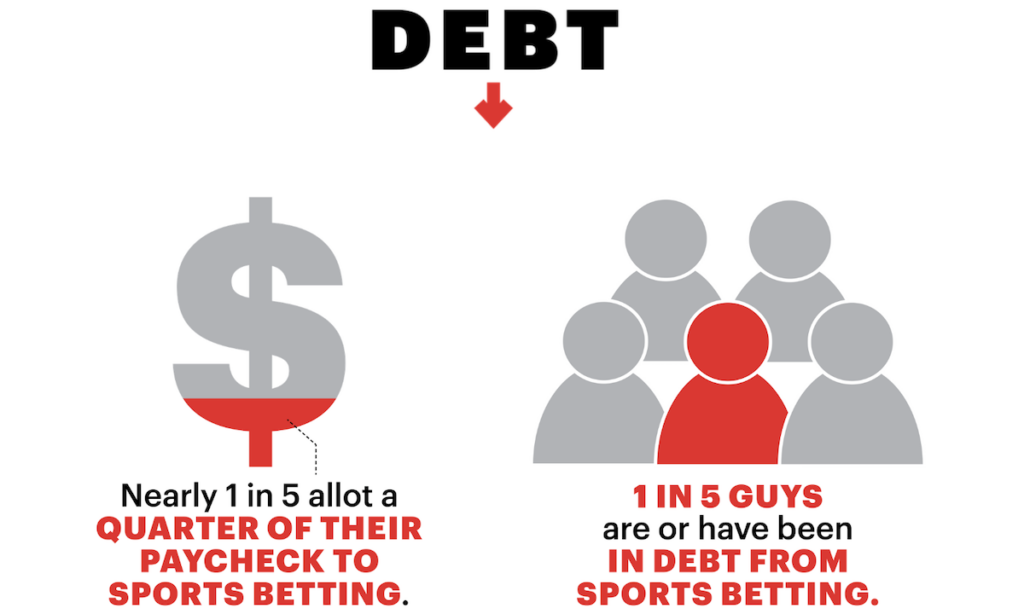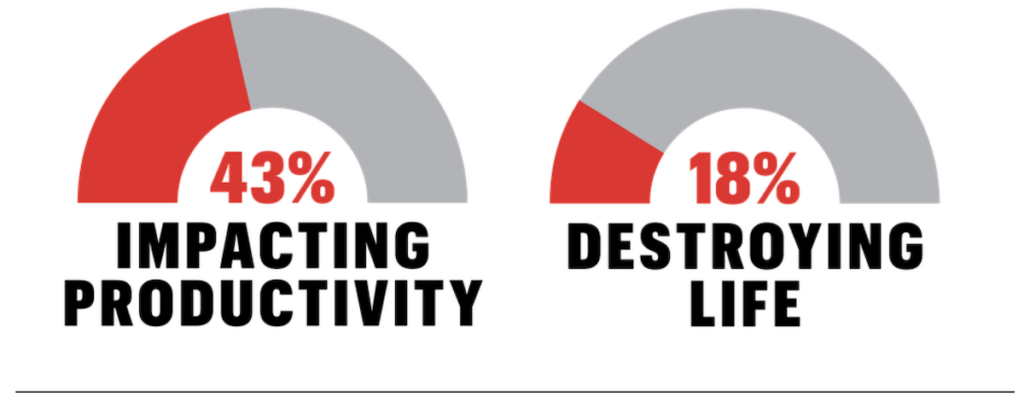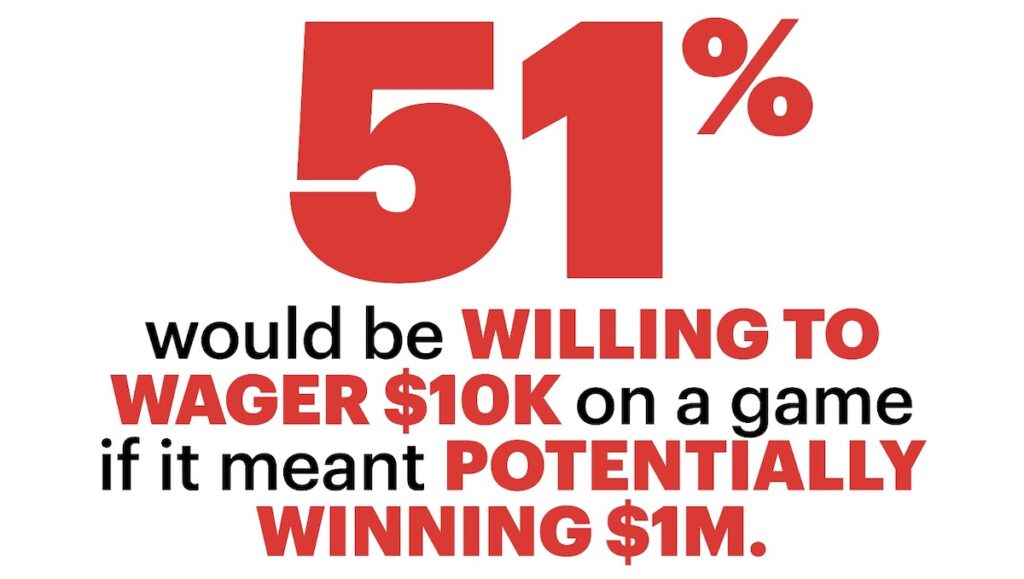The September issue of Men’s Health magazine (which featured Kindbridge Behavioral Health) introduced America to an important survey about the sports betting habits of men. One issue that was addressed was the most “tangible” of consequences – being in debt from gambling on sports. To be honest, the results were pretty shocking, and this is coming from America’s leading online resource for problem gambling support:

That’s right, one in five American men are or have been in debt from betting on sports. That’s 20% of our adult male population. If in an elevator with five guys, one of them has to pay the piper because of their sports betting habit. That’s a problem. Moreover, the same body of research found that 43% of them are experiencing reduced productivity in their careers and/or business.

How are they to cover this debt when income earning prospects are being harmed along with their credit scores? A viscous cycle indeed.
Of course, as the person reading this article about being in debt from gambling on sports, the odds are that you’re the impacted individual in the above-mentioned elevator. More importantly, you’re ready to get off, if not for your mental and behavioral health, then for the simple fact that you’re tired of being in debt.
You’ve come to the right place. Below is a breakdown of how to proceed.
What You Need to do Now That You’re In Debt from Gambling on Sports
Step 1: Get Tested for Gambling Disorder
Before considering debt consolidation and other practical methods to getting out of debt, you need to find out how difficult it may be from a YOU perspective. For instance, did you simply make one or two large wagers and lose big? After all, the Men’s Health survey indicated that 51% of American male sports bettors would be willing to wager $10,000 for a shot to win $1,000,000.

If you’re in debt from a couple of bad wagers then the solution may simply be found by chipping away at debt with sound financial advice. However, if you’re like most individuals who have found themselves in financial dire straights from gambling, it is the result of cumulative bets made over time that you have not been able to control. If this is the case, you may have a gambling problem, at which point debt consolidation services (etc.) will only be a short term fix, if a fix at all. To ensure that you don’t keep bumping around in the viscous cycle of debt due to compulsive gambling you will need to get help from a behavioral health specialist. But first, let’s find out where you stand by taking a quick 5-minute quiz to confirm (or otherwise) the presence of gambling disorder:
Step 2: YES or NO to Gambling Disorder?
What did the gambling disorder quiz unveil?
If there appears to be no instance of gambling disorder, you’re approach to getting out of debt will be a practical one. There are a variety of debt consolidation services near you that will require some homework and research on your end. Feel free to explore these options, but we do encourage you to first reference Debt.org which is a debt assistance organization that serves millions of Americans through accurate and accessible online information about personal finances.
If there appears to be an instance of gambling disorder (or you remain unsure) you should still take practical steps to getting out of debt BUT you must also speak to a gambling disorder therapist. Simply pick up the phone to call a Kindbridge care coordinator or send us an email right away.
Step 3: Get Affordable Access to Help
It may not feel like it at the moment, but it’s AMAZING that you (those who have confirmed the presence of gambling disorder) have come to terms with your problematic relationship with sports betting. In following Step 2 above you will have taken the most important step towards mental wellness in addition to debt recovery. However, one problem remains – how are you supposed to pay for therapy when you’re in debt?
Fair question.
What is the cost of getting help for problem gambling? Access to effective treatment in your state is more affordable than you may think. Problem gambling counseling is covered by a number of insurance providers via its inclusion in mental health therapy services. Learn more about the cost of gambling rehab. If unsure about whether or not you’re covered, and/or to inquire about more affordable options such as group therapy that consider your debt, contact a Kindbridge care coordinator.
In Debt from Gambling on Sports?
CALL +1 (877) 426-4258
OR
Email [email protected]


